Redux: I recently had some email conversation with Professor Westfahl and was reminded of this piece. It was well-received and, if you scroll on down, you can see that adding your own personal entry was pretty popular.
We’ll do that again! Just email steve@amazingstories.com with your name, an image of the first science fiction publication you were exposed to and maybe a small squib (undero 250 words) detailing the circumstances of how and when you were first afflicted.
Gary Westfahl’s critique of science fiction history – The Mechanics Of Wonder – has a very interesting catalog in the notes to one of the chapters that provides some detail on the first science fiction magazines seen (and read) by some of the greatest names in the field. (Mr. Westfahl uses this data to prove a point that will be covered in a review of that work later).
I’ve heard and read stories from many of the greats – the first time I ran into science fiction, there was this really fascinating magazine on the news stands – any number of times. It’s no secret that most of the greats got their start through exposure to the science fiction pulps. But you know what? I’ve never seen a comprehensive list compiled anywhere (until Mr. Westfahl’s), and certainly not one accompanied by images of the magazine issues in question.
Lets rectify that omission right now.
A. E. Van Vogt
 Has stated that his first exposure was the November 1926 issue of Amazing Stories
Has stated that his first exposure was the November 1926 issue of Amazing Stories
SFWA Grand Master (1995)
Casper Award for Lifetime Achievement (precursor to the Prix Aurora Award)
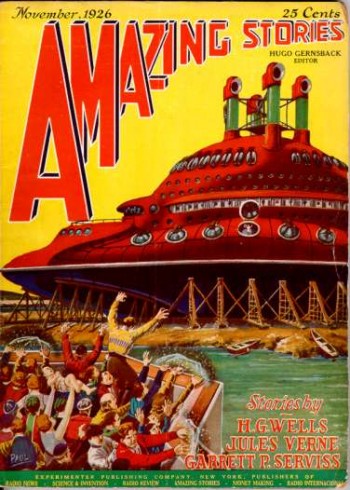
Arthur C. Clarke
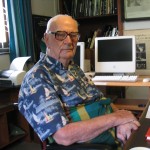 (Later to be Sir) says that his first was the November 1928 issue of Amazing Stories
(Later to be Sir) says that his first was the November 1928 issue of Amazing Stories
SFWA Grand Master (1985)
Science Fiction and Fantasy Hall of Fame inductee (1997)
Heinlein Award (2004)

John W. Campbell
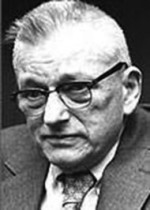
claims it was the very first issue of Amazing Stories in April, 1926
Science Fiction and Fantasy Hall of Fame inductee (1996)
Two major writing awards named for him – The John W. Campbell Memorial Award for Best Novel and The John W. Campbell Award for Best New Writer
The magazine he edited, Astounding Stories, was awarded a Best Professional Magazine Hugo Award 7 times

Jack Williamson
 got a copy of the March, 1927 issue from a friend.
got a copy of the March, 1927 issue from a friend.
SFWA Grand Master (1976)
Science Fiction and Fantasy Hall of Fame (1996)
World Fantasy Lifetime Achievement Award (1994)
World Horror Convention Hall of Fame (2004)
Bram Stoker Award for Lifetime Achievement (1998)
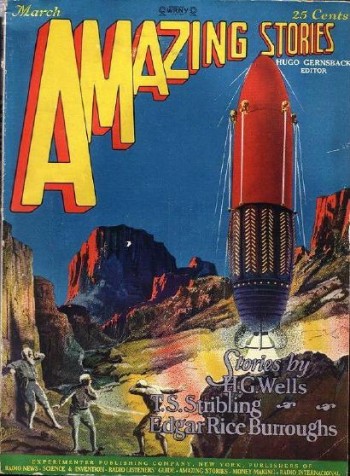
Eric Frank Russel

remembers the March, 1930 issue
He won one of the first Hugo Awards for Best Short Story
Awarded the Prometheus Award for LIfetime Achievement (1985)
Science Fiction and Fantasy Hall of Fame (2000)

Lester Del Rey
 first magazine was a different Gernsback publication – Science Wonder Quarterly
first magazine was a different Gernsback publication – Science Wonder Quarterly
SFWA Grand Master (1990)
Skylark Award
Balrog Award

but he began purchasing and reading regularly with Amazing Stories –

Robert A. Heinlein
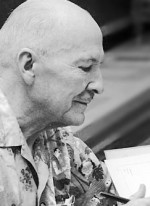 read Argosy, All Story and Gernsback’s Electrical Experimenter, that not infrequently published scientifiction
read Argosy, All Story and Gernsback’s Electrical Experimenter, that not infrequently published scientifiction
SFWA Grand Master (1974)
Science Fiction and Fantasy Hall of Fame (1998)
Four Hugo Awards for Best Novel
*
and we know from his biography that he discovered E.E. ‘Doc’ Smith when he purchased a copy of the August, 1928 issue while attending the Naval Academy –
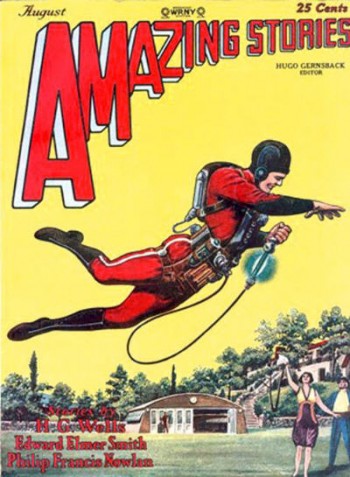
Ted Sturgeon
 intermittently read Astounding Stories, Wonder Stories and Amazing Stories from 1930 on
intermittently read Astounding Stories, Wonder Stories and Amazing Stories from 1930 on
Science Fiction and Fantasy Hall of Fame (2000)
World Fantasy Award for Lifetime Achievement (1985)
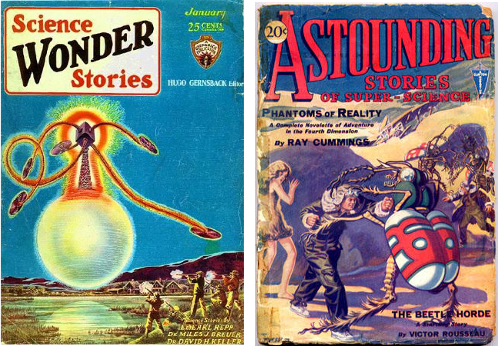

Isaac Asimov
 discovered Amazing Stories in 1929
discovered Amazing Stories in 1929
Best All Time Novel Series Hugo Award
SFWA Grand Master (1987)
Science Fiction and Fantasy Hall of Fame (2001)
Numerous Hugo and Nebula Awards

Clifford D. Simak
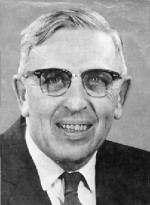 began reading Amazing Stories in 1927
began reading Amazing Stories in 1927
SFWA Grand Master 1977
Bram Stoker Lifetime Achievement Award (1987)
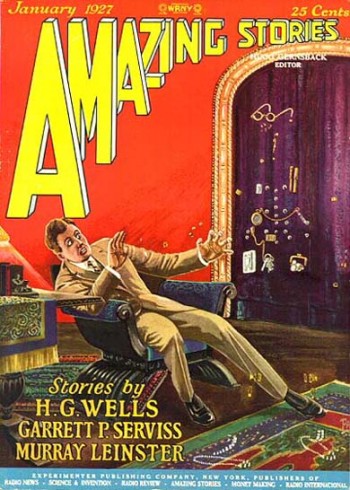
Fritz Lieber
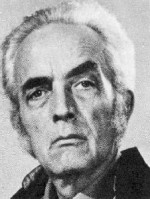 began reading Amazing Stories with its first issue
began reading Amazing Stories with its first issue
Gandalf Grand Master of Fantasy Award (1975)
World Fantasy Award for Lifetime Achievement (1976)
Bram Stoker Award for Lifetime Achievement (1988)
Science Fiction and Fantasy Hall of Fame (2001)

C. L. Moore
 began reading Amazing Stories in September of 1931
began reading Amazing Stories in September of 1931
World Fantasy Award for Lifetime Achievement (1981)
Gandalf Grand Master Award
Science Fiction and Fantasy Hall of Fame (1998)

Ray Bradbury
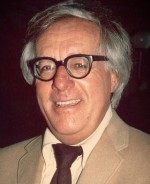 picked up the Fall, 1928 issue of Amazing Stories Quarterly
picked up the Fall, 1928 issue of Amazing Stories Quarterly
Prometheus Award
National Book Foundation Medal for Distinguished Contribution to American Letters
National Medal of Arts
World Fantasy Award for Lifetime Achievement (1977)
Gandalf Grand Master of Fantasy (1980)
Bram Stoker Award for Lifetime Achievement (1989)
SFWA Grand Master (19989)
First Fandom Hall of Fame Award (1996)
Science Fiction and Fantasy Hall of Fame (1999)

Philip Jose Farmer
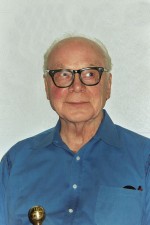 caught the bug in June of 1929 with Science Wonder Stories
caught the bug in June of 1929 with Science Wonder Stories
SFWA Grand Master Award (2000)
World Fantasy Award for Lifetime Achievement (2001)
Forry Award for Lifetime Achievement (2003)

Frederik Pohl
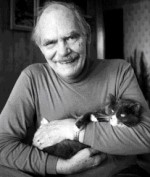 first exposure was in 1930 to Science Wonder Stories Quarterly, though he soon located back issues of Amazing Stories and Astounding Stories
first exposure was in 1930 to Science Wonder Stories Quarterly, though he soon located back issues of Amazing Stories and Astounding Stories
SFWA Grand Master (1993)
Edward E Smith Memorial Award (1967)
Eaton Award for Lifetime Achievement in Science Fiction (2009)
Thomas D. Clareson Award for Distinguished Service (1996)


Damon Knight
 the founder of SFWA, remembers the bedsheet sized August-September 1933 issue of Amazing Stories
the founder of SFWA, remembers the bedsheet sized August-September 1933 issue of Amazing Stories
SFWA Grand Master (1994)
Science Fiction and Fantasy Hall of Fame 2003
Founder of SFWA
Co-founder of Clarion & Milford Writing Workshops

Jackie Hilles
 When I was a kid my two cousins would visit during the summer. My older cousin was three years older and one summer when I was about in 5th grade, she brought a copy of The Martian Chronicles with her. I devoured that book. It was just the beginning of my love affair with SF.
When I was a kid my two cousins would visit during the summer. My older cousin was three years older and one summer when I was about in 5th grade, she brought a copy of The Martian Chronicles with her. I devoured that book. It was just the beginning of my love affair with SF.
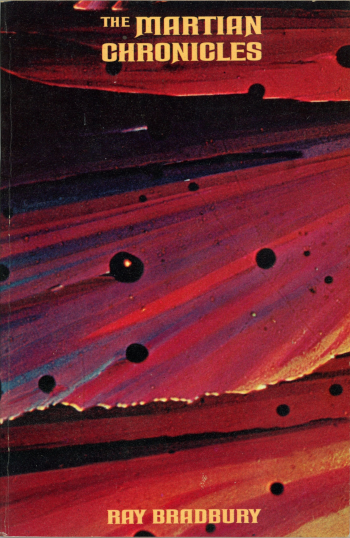
Al Sirois
 I got hold of Robert Heinlein’s HAVE SPACESUIT WILL TRAVEL from the local children’s library (my home town had a separate library for kids). Also, from the library in my grade school, I got a couple of Ruthven Todd’s “Space Cat” books. Again, I was about 7 or 8 years old. By that time I was reading above grade level, so I could follow the Heinlein book.
I got hold of Robert Heinlein’s HAVE SPACESUIT WILL TRAVEL from the local children’s library (my home town had a separate library for kids). Also, from the library in my grade school, I got a couple of Ruthven Todd’s “Space Cat” books. Again, I was about 7 or 8 years old. By that time I was reading above grade level, so I could follow the Heinlein book.
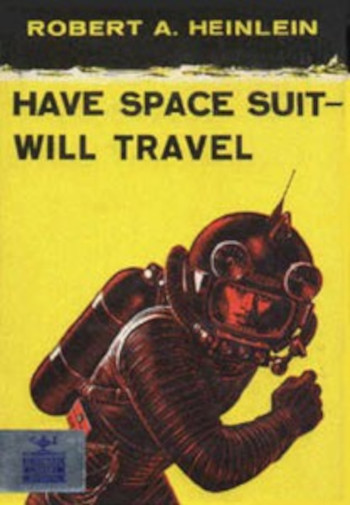
Chuck Rothman

First actual novel was Tom Swift and his Jetmarine.
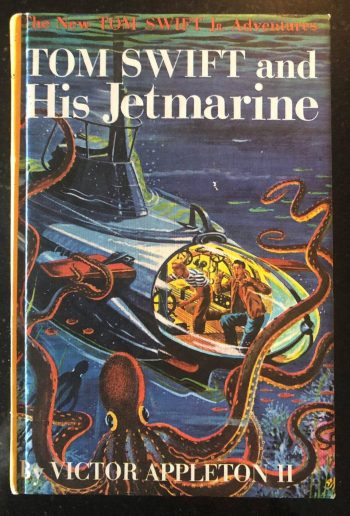
Alan Ziebarth
 I might have read some grade school level books like Asimov’s Lucky Starr series but A Wrinkle in Time was the first SF book that started my love of SF. but my love of SF really kicked in when I read Bradbury’s Twice 22, which was an omnibus of The Golden Apples of the Sun and A Medicine for Melancholy. My addiction started when I read Again, Dangerous Visions.
I might have read some grade school level books like Asimov’s Lucky Starr series but A Wrinkle in Time was the first SF book that started my love of SF. but my love of SF really kicked in when I read Bradbury’s Twice 22, which was an omnibus of The Golden Apples of the Sun and A Medicine for Melancholy. My addiction started when I read Again, Dangerous Visions.
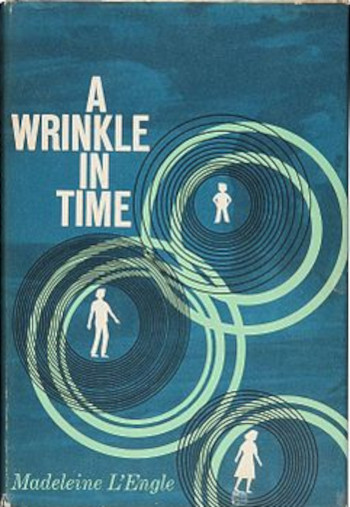 Travis Creason
Travis Creason
 My first was also a Scholastic book, but a collection. It had two Arthur C. Clarke stories, and I was intrigued, knowing he was one behind 2001: A Space Odyssey. I hadn’t seen the movie, but was awfully curious after seeing stills in Boy’s Life magazine. But it took me years to discover others also wrote this kind of stuff as well.
My first was also a Scholastic book, but a collection. It had two Arthur C. Clarke stories, and I was intrigued, knowing he was one behind 2001: A Space Odyssey. I hadn’t seen the movie, but was awfully curious after seeing stills in Boy’s Life magazine. But it took me years to discover others also wrote this kind of stuff as well.
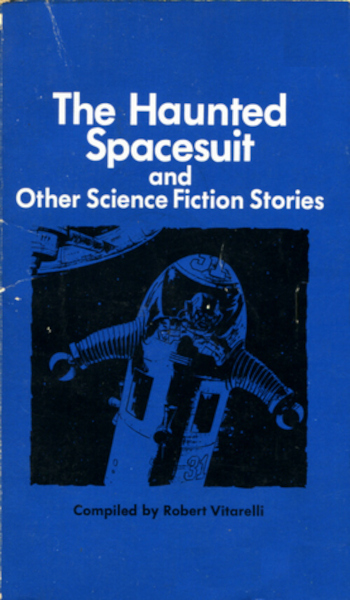
Jerome Conner

Rocket ship Galileo. For a 12 year, that was great. Boy Scouts get to fight Nazis on the Moon. Every 70s kid dream.

Don Webb

My twin brothers, who have gout (for reals not “bone spurs”) gave me a copy of The Colour Out of Space by H.P. Lovecraft on the day they were classified 4F and saved from Vietnam. I guess it took since 3 of my last 20 books are “Lovecraftian.” If you stick me on an Amazing page please note my first pro sale was to Amazing.
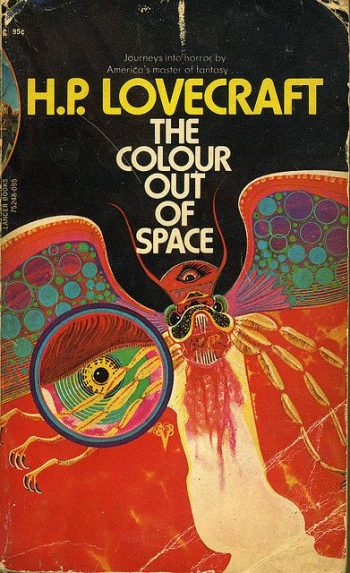
Leah Zeldes

I had been reading fantasy — Lang’s different colored Fairy Books, E. Nesbit, Edward Eager, Mary Norton, etc. — as long as I could read, but like many of my generation, my first science fiction was Madeleine L’Engle’s A Wrinkle in Time. I knew it was science fiction because it said so on the library shelf.

Ralston Stahler

The Runaway robot and Danny Dunn and the Homework Machine.

Jay Kusnetz

Does the 1970ish National Enquirer count as scifi? or is it just alternate reality fantasy? First books were probably scholastic like The Wonderful Flight to the Mushroom Planet or Danny Dunn on the Ocean Floor and in 4th grade the house we moved into came with a few of the original Tom Swift books.

Michael Ehart

The Runaway Robot was my first, too.

Greg Hullender

The Runaway Robot for me as well, at an age when I still asked adults to define words for me. I specifically remember asking what “Custody” meant. So I was probably 7 or 8, and it was 1967 or so.

John Siebelink

No Night Without Stars by Andre Norton. My middle school librarian was talking to me one morning about this female author who wrote using a man’s name so she could sell books. I read every single book of hers that my school had. It taught me that science fiction was deep and was much, much more than just aliens and laser guns.

Ernest Lilley

Missing Men of Saturn, which I mistakenly attributed to Lester Del Rey for many years.

Michael Capobianco

The Gods of Mars by ERB. This edition in my elementary school library.
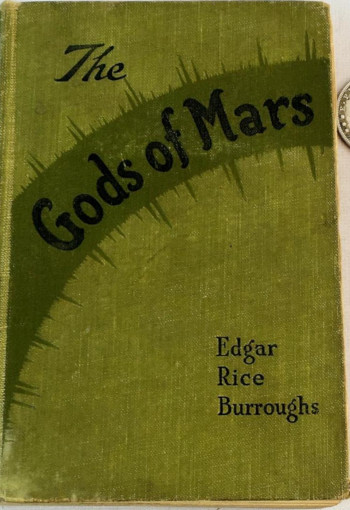
Hank Fox
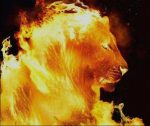

Rita Ractliffe
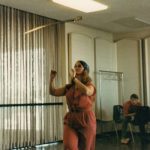
Warlord of Mars. Granpa had just taught me to read (at 5 years!) and I was voracious. Went through the 1917 Encyclopedia set, the dictionary (they didn’t have many books, lol) and then found War Lord. Didn’t understand half of it, but it was exciting, and was set for reading SF forever after!
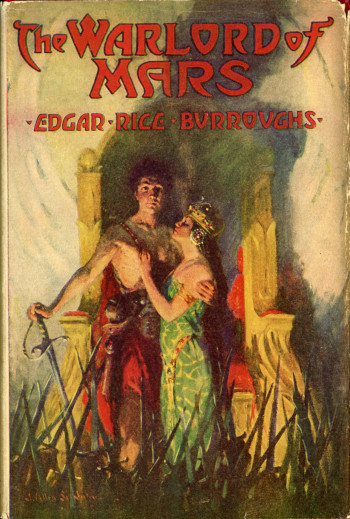
And my own:
Steve Davidson
 In, I think, second grade, I ordered a bunch of books from Scholastic (they passed around a checklist form). Among others, I picked Lester Del Rey’s The Runaway Robot (actually written by Paul W. Fairman). Robots! In Space! It filled my need for Fireball XL-5 like fare and I was hooked.
In, I think, second grade, I ordered a bunch of books from Scholastic (they passed around a checklist form). Among others, I picked Lester Del Rey’s The Runaway Robot (actually written by Paul W. Fairman). Robots! In Space! It filled my need for Fireball XL-5 like fare and I was hooked.

***
The issues and covers shown here are as accurate as current research allows; some are “guesstimates” based on the year of an author’s discovery of science fiction.
Some of these magazine covers are available for purchase as posters (in two sizes) from the Amazing Stories Store.
Editor’s Note: I’m aware that this list does not include many others active in the field during its formative years, especially influential female authors, such as Judith Merrill, Leigh Brackett, etc. Information regarding their first magazine exposures is not currently available. We would be happy to expand this list with verifiable information.


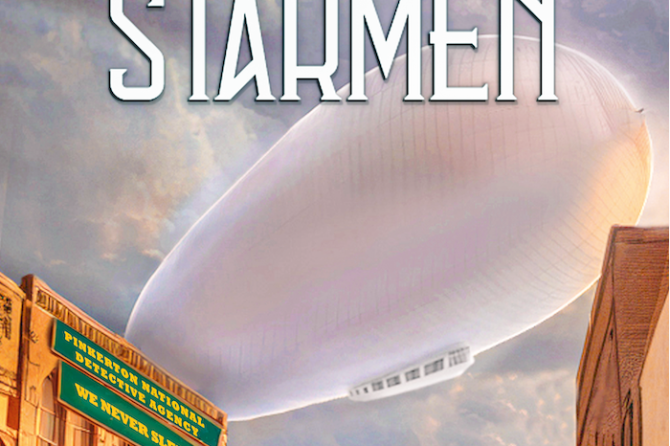


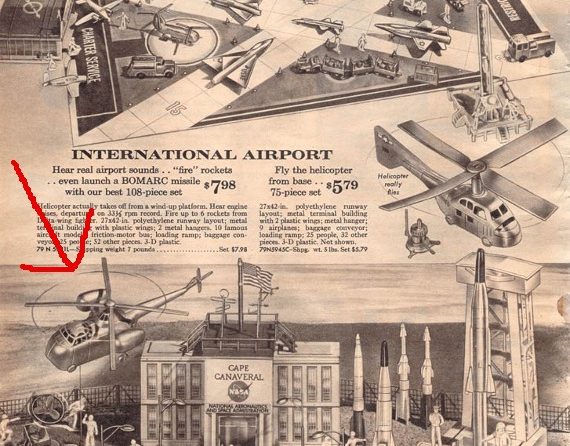





That’s a “Casper” award, not a “Caspar” award (A.E. Van Vogt).